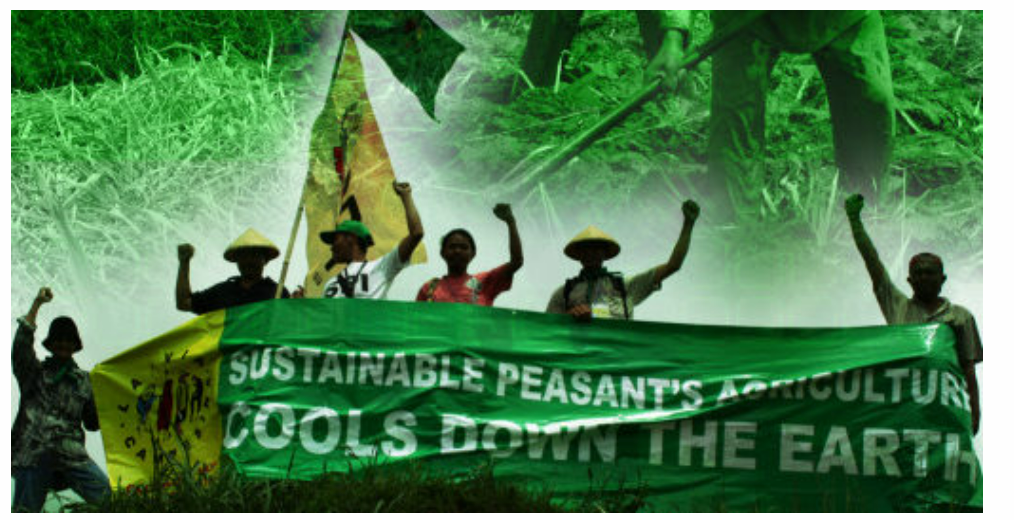What are commons? A brief journey of the history of the commons
When talking about the commons, it is worthwhile to go back into history of the commons. One historical landmark is the Magna Carta, established in 1215 ensuring the rights for people to access the woodlands for fuel and heating. Back in these days, the woodlands were what these days fossil fuels are, the material tool for survival. The traders and the bourgeoisie (the city people), wanted this part of the Magna Carta not to be mentioned.
This is what governments, traders, merchants, corporations want people to forget. People have a right to access the commons for their own survival”.
Peoples’historian Peter Linebough
The access of the commons was constituted in other juridical texts across European kingdoms and cities. The people were able to go into the woods for making tools, harvesting fruits, roots, barks, collecting medical plants and collecting fire wood. The woods were common places and were organised under a customary agreements in an oral tradition. The elders of the community were responsible keeping the customary agreement and were in a position to discuss its implementation. Customary management agreement are very typical around food production and reproduction, for example, in the property regime of the seed. The seed mirrors the evolutionary path of the human evolvement. This strong link between seeds and humans had been interrupted by legislations promoting the privatisation of seeds. Instead of humans self-governing their own evolutionary path, the state gives leeway to seed corporations like to the corporation Bayer, to take responsibility over the qualities of our seed, and subsequently our food production. The common property regime is regulated by the customary agreement, and is viewed inferior to the Westphalian order, where resources are allocated to individual ownership (Jessop 2016). Needless to say, a lot of conflict is arising amongst communities precisely over resource ownership.
These days, chainsaws chopping away the primary forests in Africa along the Congolese basin covering at least eleven countries, in Amazonia, Latin America, and the rain forest in South-East Asia. The chopping of trees means that people do not only lose their livelihoods - they lose their communities, their knowledge, theirs autonomy of self-organising their livelihoods. People, in search for surviving, move into urban slums looking for jobs, become thieves, or vagabonds, or international migrants.
The process of forced appropriation is what the political economist Karl Marx called primitive accumulation, taken the term from Adam Smith. Marx describes in the first Volume of das Kapital, the need for capital to violently appropriate people from their land – a process exercised by the merchants, the traders, the corporations. For capital to create commodities, it needed the woods in the past for fuels or making boats, in the present, it needs the land for making monocultural production for cultivating soybeans to feed cows and cars for example, or for the carbon trading mechanism that is for carbon emitters to offset their carbon. The woods are resources as much as for the communities as for capital, with the difference, that capital uses the resources for making commodities and put them onto the international market. Therefore, when people struggle these days for maintaining or reclaiming the commons, the struggle is about ownership of the land – which now has extended to the oceans, the seed, the water, the air. Do these resources own capital, and if so, has capital the right to commodify every aspect of the resource, which then people have to buy back from capital for a higher rate to provide capital the possibility for making a profit? Or do people have the right to access these commons and can exercise their right to self-govern the resources for their own survival?
As much as ownership was debated in the days of the Magna Carta, it is back on the peoples’ agenda because of the growing social inequalities and economic inequities at first divided along global South and global North upholding the colonial structure through the International Financial Institutions, and increasingly sharpening these divisions within the countries of the global North along racial, gender, religious, generational lines. The artificial construct of dividing people drives the competition amongst people and the pittance of playing out each other drives up profit accumulation. The mechanism of poverty creation and its management takes different shapes and forms whether its refugee camps or prisons, food aid or food banks, slums or council housing, micro-credits and mortgage payments. What these mechanisms unite is cutting short the ability of people to self-organise their livelihoods around the commons. Today, only a fraction of self-organisation is a great effort for many people because of our tight social reproductive entanglements with capital.
In understanding the mechanism of capitalism, food is exemplary in revealing the re-arrangement of social relations within the capitalist matrix, as it collides with ‘personal’, and ‘traditional’ stories people are accustomed with. With the first bite, food has the magic of connecting people with their first memories of a specific food they are tasting, and brings up the socio-cultural context, in which the food was eaten and what stories were told. These memories are shared orally with other people over dinner tables. In these stories, people exchange cooking recipes from grandmothers and mothers, cultivation techniques that explains the peculiar taste of the food they are eating, and the soil and weather conditions, and what kind of seeds are used. The stories convey more than simple nutritional value as food traders or food corporations would like to tell us. The making of the food comes together with managing the resources around food cultivation ‘to guarantee the long-term sustainability of extracting a commons’, contextualised here in food production, argues the Nobel Prize winner in economics Elinor Ostrom. She studied on hundreds of communities across the globe the management of the commons by communities, and summarised their self-governance on eight principles.
Box 1.1. The eight self-governance principles by Elinor Ostrom
The principles for self-organising the commons emerge intuitively and are managed through introduced mechanisms suited to specific cultures, norms, traditions and context. Through the continuous engagement of users of the commons, the commons were alive for centuries in communities.
The eight principles are widely used in European communities to guide them for reclaiming and self-managing their commons. Interestingly, Elinor Ostrom started to study the collective managements system to rebuke the succinct thesis by the biologist Gareth Hardin, who viewed that open access to the commons leads to over-using the commons and eventually to its destruction. He made the case that through private ownership a better management system of the long-term survival of the commons can be ensured. Paradoxically, it is precisely this unfettered open access without common stewardship and the individual ownership of the commons that is leading to the destruction of the environment, the biodiversity of seeds, the death of the oceans and the forests, and the pollution of the air. At the same time, people struggles’ to gain access to the commons for self-governing the resources intensifies, the common saying within the commons movement cannot be more acute: “Without communities establishing rules on the use of and care for the commons, there are no commons.
References
Federici, S. (1990) The Debt Crisis, Africa and the New Enclosures. New York: Midnight Notes Collective and Friends.
Foster, J. (2013) ‘Marx and the Rift in the Universal Metabolism of Nature’, Monthly Review, 65(7), pp.1-20.
Jessop, B. (2016). The State: Past Present Future. Cambridge: Polity Press.
Linebough, P. and Rediker, M. (2000) The many-headed hydra. Sailors, Slaves, Commoners, and the hidden history of the Revolutionary Atlantic. Boston: Beacon Press.
Linebough, P. (2013) ‘Who owns the commons? An 800 year fight for public goods. Laura Flanders Show, https://www.youtube.com/watch?v=nSF3m_Uav6Y [Access 14.04.2023].
Marx, K. (1976) Das Kapital, Vol. I. London: Penguin Press.
Ostrom, E. (1990) Governing the Commons. The Evolution of Institutions for Collective Action. New York: Cambridge University Press.

Also read
-
Despite a less tight labour market no end to shortages in healthcare, education, and tech
Interesting new findings in the report 'The Labour Market by Education and Occupation until 2030' from the Research Centre for Education and the Labour Market (ROA) at Maastricht University.
-
Teacher Information Points at UM
UM faculties now host Teacher Information Points (TIPs) that offer local, “just-in-time” and on-demand support for teaching staff. The aim is simple: to provide help that is closely connected to day-to-day teaching practice.
-
Shaping the future of marketing: SBE scholars at the forefront of research and teaching
Three faculty members from SBE’s Department of Marketing & Supply Chain Management, Prof. Dr. Dominik Mahr, Dr. Jonas Heller, and Dr. Tim Hilken, combine cutting-edge research with innovative teaching and mentorship. From exploring the societal implications of digitalisation in courses such as...